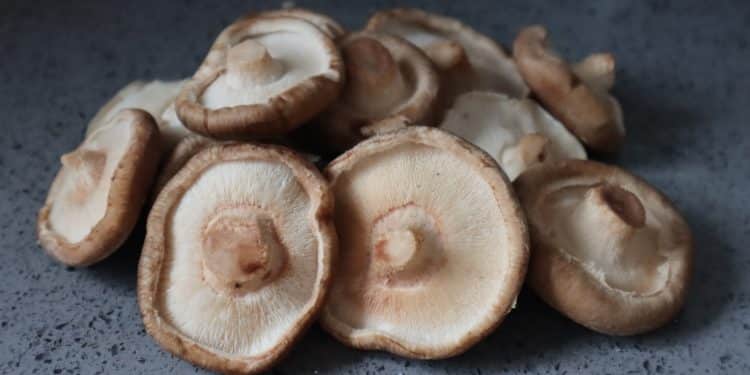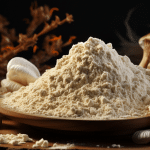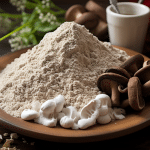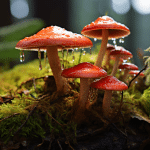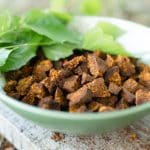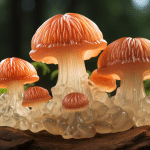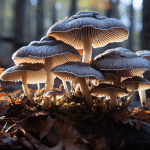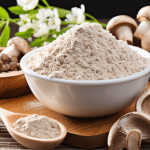Shiitake mushrooms are among the most sought-after mushrooms around the world. They are coveted for their intense, flavorful flavor and varied health benefits. Compounds found in Shiitake mushrooms can help fight cancer, improve immune system function, and support heart health. This article explains everything you need to know about the health benefits of shiitake mushrooms.
What Are Shiitake Mushrooms?
Shiitakes are an edible mushroom that originated in Eastern Asia. They are dark-brown or tan in color, and have caps growing 2 to 4 inches (5 and 10 cm). Although they are generally eaten as vegetables, Shiitake mushrooms are fungi that naturally occur on rotting hardwood trees. About 83% of shiitake are grown in Japan, though the U.S., Canada, Singapore, and China produce it as well. You can find them fresh, dried, or as a variety of food additives.
You can find our favorite supplements containing Shiitake Mushrooms on the following page of our website to learn more.
Best Shiitake Mushroom Supplement
Nutritional Health Benefits of Shiitake Mushrooms
Shiitake mushrooms are very low in calories. They also provide good amounts of fiber, along with B vitamins and a few minerals. In addition, Shiitakes provide many of the same amino acids that meat provides. They also boast polysaccharides, terpenoids, sterols, and lipids, some of which are immunologically-boosting, cholesterol-lowering, and cancer-fighting. The number of bioactive compounds in shiitake mushrooms depends on how and where the mushrooms are grown, stored, and prepared.
Shiitake mushrooms have two primary uses: for food and for supplements. You can prepare food using fresh or dried shiitake, though the dried ones are a bit more popular. Dried shiitake has a umami-like taste, which is even stronger than when they are fresh. Umami flavors can be described as either savory or meaty. It is generally considered to be the fifth flavor, along with sweetness, acidity, bitterness, and saltiness.
Physical Health Benefits of Shiitake Mushrooms
Both dried and fresh Shiitake mushrooms are used in stir-fries, soups, stews, and other dishes. Shiitake mushrooms have been used for some time in traditional Chinese medicine. They are also a part of medical traditions of Japan, Korea, and eastern Russia. In Chinese medicine, shiitake mushrooms are thought to promote health and longevity, and to enhance circulation. Some of the bioactive compounds found in shiitake can protect against cancer and inflammation, studies have shown.
However, many studies were done on animals or in test tubes, not humans. Animal studies often used dosages far above what humans normally would receive through foods or supplements. In addition, many of the mushroom-based supplements on the market are untested for efficacy. While the proposed benefits are promising, further studies are needed.
Improve Heart Health
Shiitake mushrooms can improve the health of your heart. The compound inhibits an enzyme involved in the production of cholesterol. These molecules help to block the absorption of cholesterol into the gut. This type of fiber may reduce your cholesterol levels.
May Lower Blood Pressure
One study on rats with high blood pressure found that shiitake prevents the increase of blood pressure. A study of laboratory rats fed high-fat diets found that those given shiitake developed less fat in the liver, less plaque on the artery walls, and lower cholesterol levels than those who did not eat any mushrooms. However, these effects must be confirmed in studies with humans before any firm conclusions can be drawn. Shiitake may also help boost your immune system.
Improve Immune System Function
One study gave people two dried shiitake mushrooms daily. After one month, their immune markers improved, and inflammation levels decreased. This immunological effect may have been in part attributed to one of the polysaccharides found in Shiitake mushrooms.
While human immune systems generally decline as they get older, one mouse study found that supplements made with shiitake helped reverse some of the aging-related decreases in immune function.
May Have Anti-Cancer Benefits
Polysaccharides found in shiitake mushrooms can have an anticancer effect, too. For instance, polysaccharide lentinan helps to fight off tumors by activating the immune system. Lentinan has been shown to inhibit leukemia cell growth and spread. In China and Japan, injectable forms of lentinan are used along with chemotherapy and other basic cancer treatments to improve the immunological functions and quality of life in patients with gastric cancer.
However, there is not enough evidence to establish if eating Shiitake mushrooms has an impact on cancer. Shiitake mushrooms can also help fight infections and promote bone health.
Antibacterial and Anti-Fungal
Several compounds found in shiitake mushrooms have antibacterial, antiviral, and antifungal effects. As antibiotic resistance grows, some scientists believe that it is important to investigate shiitakes antimicrobial potential. That is, although isolated compounds have shown antimicrobial activity in test tubes, eating shiitake is not likely to affect virus, bacterial, or fungal infections in humans.
Improve Vitamin D Levels
Mushrooms are the only natural plant source of vitamin D. Your body needs vitamin D to build strong bones, but few foods provide this essential nutrient. The vitamin D levels in mushrooms differ depending on how they are grown. When exposed to UV light, they produce higher levels of the compound.
In one study, mice fed a diet with less calcium and less vitamin D developed symptoms of osteoporosis. In contrast, those fed calcium-enriched, UV-enhanced shiitake had higher bone density. However, remember that shiitake provides Vitamin D2. This is a lower form than vitamin D3, found in fatty fish and certain other animal foods.
Most people can safely eat shiitake, though there can be some side effects. In rare cases, people can get a skin rash after eating or handling raw shiitake. This condition, called Shiitake Dermatitis, is thought to be caused by the enzyme lentinan.
In addition, using the powdered extract of the mushrooms for an extended period of time can lead to other side effects, including stomach discomfort and sun sensitivity. Some people have also claimed that the mushrooms high purine levels may trigger symptoms in those suffering from gout. Regardless, studies have shown that eating mushrooms is associated with lower gout risk.
Conclusion
Shiitake mushrooms have a long history of usage, either as food or a supplement. While the research into the health benefits of these mushrooms is promising, there are few studies of humans. However, shiitake mushrooms are low in calories and provide a variety of vitamins, minerals, and biologically active plant compounds. Overall, they are an excellent addition to your diet.
Learn more:
